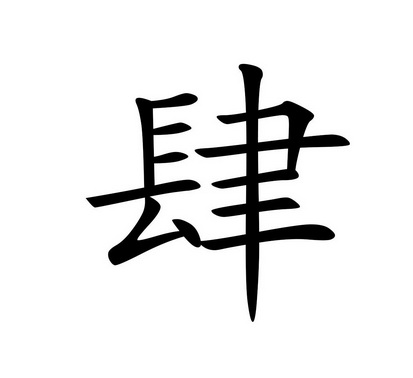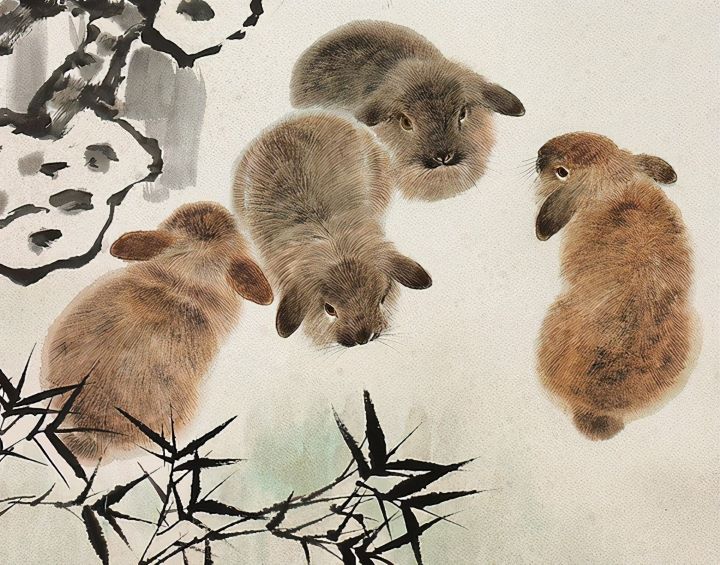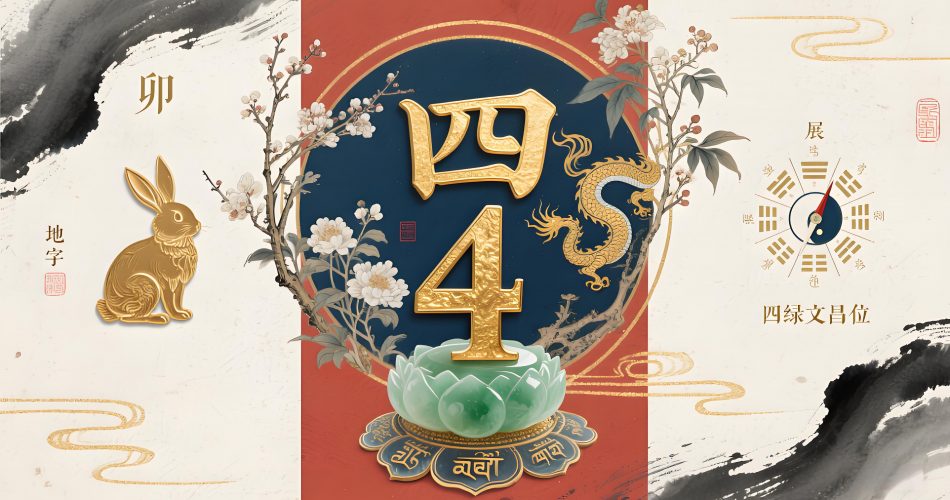Is 4 is lucky number? When we talk about the meaning of the number 4 in China, we usually find contradictions and diversity about the meanings.
As a number, there is no doubt that “4” expresses quantity and count, but it comes with a series of profound cultural symbols, homophonic meanings, and influences on traditional beliefs.
This article starts with the difference between the number 4 and the Chinese character “肆” (four), and it then delves into the multiple aspects of this number in China, from cultural implications to the influence of feng shui and from the symbols of the zodiac signs to the meanings of Buddhism and Book of Changes.
Let’s explore the role of the number “4” in China.
Table of Contents
- 1. The Connections and Differences between the Number “4” and the Chinese Character “肆”
- 2. Is 4 an Unlucky Number in China?
- 3. The Meaning and the Extended Meanings of 4 in Homophones
- 4. The Meaning of “4” in Traditional Chinese Culture
- 5. The Meaning of 4 in Feng Shui (Geomancy)
- 6. The Meaning of 4 in the Chinese Zodiac
- 7. The Meaning of 4 in Book of Changes
- 8. The Meaning of 4 in Buddhism
- 9. Can 4 be my Lucky Number?
1. The Connections and Differences between the Number “4” and the Chinese Character “肆”
“Four” is the Chinese form of the Arabic numeral “4”, which was first seen in oracle bone inscriptions.
The numerical meanings of the number “4” and the Chinese character “肆” are completely the same, but there are differences in writing and pragmatic relationships.

However, the extension of the traditional form of “four”, “肆” has more abundant meanings compared with the numerical form, “4”.
Regardless of the equality between the number 4 and the Chinese form, “肆”, the latter boasts more profound meanings. The Chinese Character “肆” also has the meaning of layout and exhibition, and even extends to the meaning of recklessness.
Moreover, this Chinese character also includes multiple meanings such as workshops and shops.
2. Is 4 an Unlucky Number in China?
In China, the number 4 is widely regarded as an unlucky number, mainly because its pronunciation is very similar to the pronunciation of the Chinese character “死” (meaning “death” in English).
This homophonic phenomenon has led to negative associations with the number 4, and people often consider it a symbol of bad luck and misfortune.
Therefore, this number is usually forbidden to be used. This is similar to the taboo of many Western countries towards the number 13.
The number 4, as an unlucky symbol, tends to exert effects on some situations in daily life, especially in areas such as housing, healthcare, and transportation.
In hospitals, patients and family members avoid using room numbers with the number 4.
When purchasing a house, people avoid using floors, houses and numbers with the number 4.
In addition, the number 4 is also avoided when people select a license plate number.
However, from a rigorous logical and scientific perspective, this connection does not have a practical causal relationship.
Furthermore, in the modern society, people have developed more innovative and open attitudes towards the number of 4.
Read More: 5 Ways to Find Your Chinese Lucky Number
3. The Meaning and the Extended Meanings of 4 in Homophones
The most common homophonic sound for number 4 is “death”, which can easily evoke associations related to negative meanings such as death and termination. That is why people often avoid being associated with the number of “4”.
In online culture, the homophonic “death” of the number 4 is also widely cited and extended, often used to express negative or playful emotions. The network word “4B” is often applied to depict someone stupid.
Besides, another homophonic sound for the number “4” is “是” (“Shi” in Chinese Phonetic Transcription and “Yes” in English). Therefore, in online chatting, to type quickly online, people often replace “是” with “4”, meaning “Yes”.
4. The Meaning of “4” in Traditional Chinese Culture
Although the number 4 is currently regarded as an unlucky number, it has a completely different interpretation in ancient Chinese culture.
Firstly, the number 4 symbolizes the flourishing population. The Chinese character form of “4” is “四”, which is formed by surrounding a small character “儿” (son in Chinese) with four vertical bars, indicating that the square house is filled with children and grandchildren and that there is a growing family.
In addition, the number “4” means harmony and stability in the Chinese traditional culture.
Since ancient times, Chinese architectural design and garden style have emphasized the symmetrical form of square and upright as people believe that a balanced symmetry is the most harmonious and stable form. That is why “4” is considered a symbol of stability.
5. The Meaning of 4 in Feng Shui (Geomancy)
In feng shui, the number 4 presents distinct dual meanings.
On the one hand, the number 4 boasts auspicious meanings as it is often believed to be a sign of stability, solidity, and justice. It is usually related to foundations and buildings. Many buildings in China have a square layout, which allows them to stand firmly on a solid foundation.
On the other hand, “4” also has negative meanings. As the homophonic sound of the number 4 is similar to the Chinese character “死” (death in English), it is believed that it may introduce an inauspicious aura, which can have adverse effects on the health, financial fortune, and other aspects of residents.
For example, in the elevator button designs, the buttons for the fourth floor are commonly represented by “3B” (the third floor is “3A”). Numbers are often considered to exert certain impacts on different aspects in Feng Shui, such as the fortune of the residents.
6. The Meaning of 4 in the Chinese Zodiac

In the twelve Chinese zodiac signs, each sign has its own specific number. And 4 represents the Chinese zodiac rabbit, symbolizing happiness and gentleness.
The Chinese zodiac rabbit is a very obedient, cute, and gentle animal. People born in the Year of the Rabbit are gentle, kind, polite, well behaved, and kind and tolerant. They usually have strong empathy and are willing to help others.
7. The Meaning of 4 in Book of Changes
According to Book of Changes, “Changes are Taiqi (the Ultimate), which gives birth to two states. Two states are then developed into four images, and the four images give rise to eight hexagrams”.
The so-called “Four Symbols (images)” refer to the concepts of time and space, specifically the four seasons of spring, summer, autumn, and winter, as well as the four directions of east, south, west, and north.
Hence, “4” is the foundation of the formation of the world and the foundation of the mysteries of the entire universe.
Beyond that, the number 4 corresponds to the vibration hexagram in the 64 hexagrams of the Book of Changes, and delivers meanings such as positivity, progress, and prosperity.
8. The Meaning of 4 in Buddhism
In Buddhism, the number 4 represents the Four Noble Truths (suffering, concentration, extinction, and Tao) and the Four Infinite Hearts (kindness, compassion, joy, and giving). These are some important concepts in Buddhism, implying the most important ideas in Buddhism.
Secondly, the number 4 also symbolizes the four major elements of earth, water, fire, and wind in Buddhist beliefs, which are considered the fundamental elements that make up the world. Therefore, the number “4” is regarded as the foundation of the world.
9. Can 4 be my Lucky Number?
Yes.
Although the number 4 is considered an unlucky number in China, you can still choose it as your lucky number as the number 4 is also endowed with meanings such as harmony, stability, and prosperity.
Furthermore, personal lucky numbers usually vary from person to person, and can be chosen based on personal beliefs, experiences, or preferences.
If you think that the number 4 has a special meaning in your life, or if you are open to the symbolic meaning of numbers, it is entirely reasonable to consider the number 4 as your lucky number.
No matter it is the number of 4 or any other numbers, you can deem it as a lucky number so long as it is meaningful for you or it can deliver positive effects to you.
Whether in ancient or modern China, the number 4 carries rich cultural connotations. Although it has different forms from the Chinese character “肆” (four), they are closely related in terms of the meaning and the interpretations of time, space, and life.
The number of “4”, like other numbers in China, exhibits multifaceted characteristics and becomes a microcosm of the diversity of Chinese culture.
